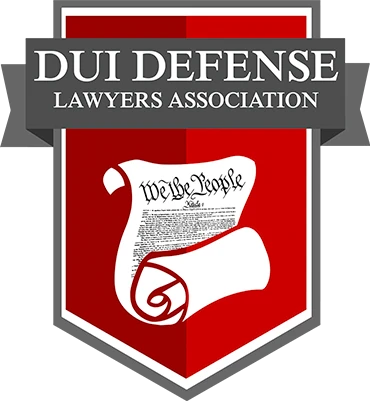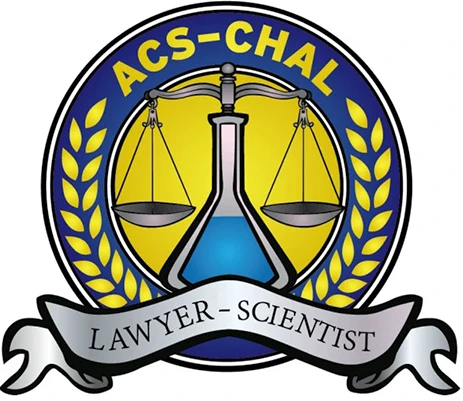Read part 1 >>>
Winning or losing your DWI case understandably makes for compelling and highly personalized drama and consequences. Evidence or lack of evidence at your trial has direct relation to the verdict. Multiple laws affect the sample requested and/or obtained. A blog post cannot comprehensively address all the laws associated with breath testing, so this post is intended to cover the ones with the most direct applicability to most cases.
Cops Choose The Sample, And No Defense Lawyer Is Involved
Legally, you may never get the opportunity to make a choice to take or refuse a breath test. The arresting officer legally gets to choose which type of sample you’ll be asked to give. (See Texas Transportation Code Section 724.012 (c)*). It’s also critical to understand refusal does not require an affirmative and forceful “NO!” Anything short of prompt obedience to the cop’s request is legally considered refusal.
For example, refusal includes a polite request to talk to an attorney before deciding whether to obey the cop, so your DWI arrest effectively means you don’t have a right to an attorney to assist you after your arrest to navigate whether you should cooperate with your accusers.
Also, if the cop gets a warrant for blood, your consent won’t matter at all whether a sample is obtained. A warrant allows cops to legally strap you down and have a needle forcibly jammed into your body. You might think it would be hard to get a judge to authorize such a forcible blood draw in the United States of America, Land of the Free; you would be dead wrong. This even applies to misdemeanors with no bad driving, no wreck, no fault, no injury, no death, and no breath test.
It's Easy To Get a Judge To Authorize Cops To Forcibly Extract Blood
Even worse, the incredibly low burden of proof required for a warrant is probable cause that an offense has been committed.
Judges routinely grant virtually every DWI blood warrant request based solely on what the cop decides to disclose. For example, a cop can allege to the judge that he/she smelled the odor of alcohol on your breath and you failed to adequately perform a one-leg stand, yet make no mention of the fact the cop also knows both your legs were injured in a crash, rendering you unable to successfully perform the task. The judge, hearing only one cherry-picked version of the truth, routinely will authorize the cop to stick a needle in your arm.
Law enforcement agencies’ policies don’t have the same legal status as a statute like in the Transportation code, but such policies may make the cop’s decision for him/her. Some agencies have judges on standby 100% of the time to process search warrants for blood when requested by cops after refusal by an arrested person to give a sample. Ultimately, the popular question of “should I blow” doesn’t have as straightforward an answer as I’d like to give.
Refusal To Provide a Sample Has Consequences
Also, if the cop requests any of the samples, you can certainly refuse, but there are other consequences to refusal.
One consequence could be suspension of your driver license through the Administrative License Revocation (ALR) procedure, which is part of the Transportation Code. ALR hearings are an important standalone topic and are discussed in the last FAQ at this link .
How long a suspension may last is directly tied to 1) whether you refused to give a requested sample (or provided a sample of .08 or greater); and 2) whether you have a prior “alcohol related contact,” usually meaning a DWI arrest, from the past 10 years.
Refusal has a range of suspension between 6 and 24 months. Test “failure,” defined as providing a sample of .08 or greater, has a suspension range of 90-365 days. In other words, ALR suspensions are doubled for refusal versus test “failures.” There is one exception.
What Happens To My License Suspension, If I Win My DWI Trial?
Only if you are found “not guilty” after a criminal trial will the ALR suspension legally be negated. That is the only intersection of the ALR and DWI cases. The two cases don’t go at the same speed to resolution, since they are in different courts with different rules. The result is you could lose the ALR long before you get to trial on the DWI criminal case.
While you wait for the criminal trial, you may suffer through the suspension. If your “not guilty” verdict comes after you’ve served the suspension of your driver license, the effect is you were punished for a crime the state couldn’t prove you committed. That’s Texas “justice.” Thank your Legislature for this form of “justice” under its laws.
It may be difficult to believe, but even a dismissal of your criminal case has no effect on an ALR. That’s right. Even if a prosecutor in your criminal case decides the evidence in your case is so weak it’s not worth filing the DWI case, or that a case already filed is worthy of dismissal, the ALR is absolutely unaffected legally.
There is Some Possibility of Limited, Temporary License Relief
Occupational Driver Licenses (ODLs) are quickly available to most drivers by filing with a justice court, also known as a “justice of the peace.” Some vehicles, such as commercial vehicles, legally cannot be driven with an ODL, though. In some circumstances, a waiting period must pass before an ODL is considered valid. For those situations, suspensions simply must be served during the waiting period; we colloquially call these “hard” suspensions, since there is no relief.
Refusal Also May Be Used As Trial Evidence
The “right to remain silent” is one of our most famous rights. Our country has decided silence against criminal accusations is not evidence of guilt. A close corollary right is your right not to be forced to provide evidence against yourself. This is true, even if you are a suspected mass murderer, terrorist, or sex trafficker of children. To allow cops to force you to produce evidence against yourself is unconscionable and barbaric. Your first-time misdemeanor DWI arrest, however, is so much more evil than other crimes it is worthy of gutting your legal rights.
Our highest courts have uniformly ruled the concept of “implied consent” is enough to render you undeserving of your right to not participate in your prosecution. Driving has been deemed a “privilege” by our highest courts, and you are allowed to drive only if you give up rights. You don’t even need to be notified that you lose rights the moment you drive a motor vehicle. You get to learn that hard fact when you keep your mouth shut and don’t obey the cop’s request to cooperate in the investigation against you, even after you’ve been arrested.
Your refusal to obey the cop’s request for a breath or other sample could be used against you at trial. (See Transporation Code Section 724.061 ). This law is in place because the Rules of Evidence provide defense attorneys the opportunity to keep out this kind of evidence. Why you refused is only known to you, so it is up for debate. Refusal could be entirely unrelated to a guilty mind, but your Legislature decided to make it Texas’ policy that unfair prejudice is admissible in your DWI case. This puts you in the position of being the only one who can testify about your actual reason for refusing, meaning it has the effect of coercing you to give up your right to remain silent.
DWI Laws Are Meant to Ensure Convictions
Of course, the purpose of allowing refusals into evidence is to increase the likelihood of conviction for DWI. Prosecutors get to argue your refusal, even if you were simply silent in response to the request for a sample, means you knew you were guilty and didn’t want to cooperate. That’s simply un-American and an affront to justice. I don’t write that lightly because I find it absurd and contrary to our system of justice. While it is true refusal COULD indicate a guilty mind and a desire to hide incriminating evidence, it could also indicate a sharp mind unwilling to provide a sample to be tested using an unreliable method. Something seems terribly wrong about being required to provide evidence against yourself, as well.
A DWI arrest subjects you to unique forms of legal abuse and deprivation of rights. These exceptions are contrary to historically grounded rights and principles of fairness generations of Americans have understood as fundamental. These exceptional abuses are grotesque to me and a big reason I am motivated to defend people accused of DWI. The government has systematically and unfairly stacked the deck against you.
*Urine is another form of sample cops can request, but I have yet to see one example of such a request in my 30+ years of practice.















